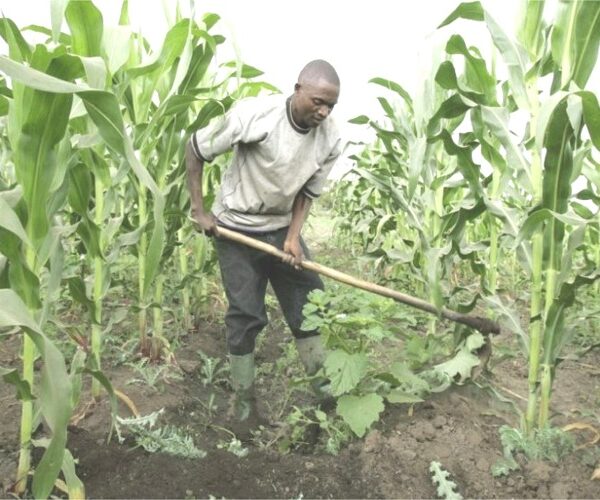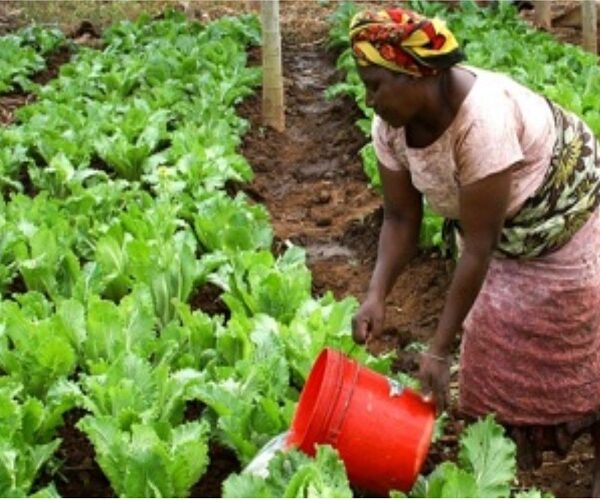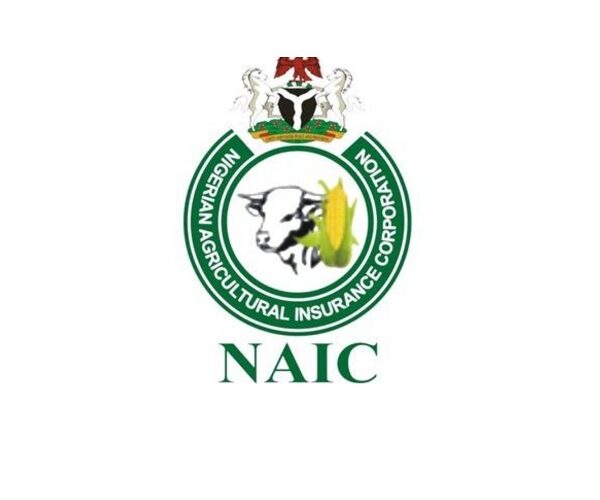- Government Organisation
- Umuahia, Abia, Nigeria

National Root Crops Research Institute (NCRI)
About Us
The National Root Crops Research Institute (NRCRI), headquartered in Umudike, Abia State, Nigeria, stands as a cornerstone of agricultural research and development in the country. Established in 1923, NRCRI is one of Nigeria’s oldest and most prestigious agricultural research institutions. Its mission is to drive innovation and excellence in root and tuber crop production, which are vital staples in the diets and livelihoods of millions of Nigerians.
NRCRI is dedicated to improving the productivity, resilience, and quality of key root and tuber crops such as cassava, yam, sweet potato, cocoyam, and others. Through cutting-edge research, the Institute develops improved crop varieties, sustainable farming techniques, and value-added processing methods. Its work plays a critical role in enhancing food security, empowering rural communities, and contributing to Nigeria’s agricultural economy.
With a rich legacy of over a century, NRCRI continues to advance agricultural practices, foster rural development, and promote economic growth through innovative research and strategic partnerships with local and international stakeholders.
Origins and Development of NRCRI
The National Root Crops Research Institute (NRCRI) traces its origins to the establishment of the Umudike Agricultural Research Station in 1923 by the British colonial administration. Initially situated on a 20-hectare site, the station aimed to enhance agricultural productivity through research and the introduction of improved farming practices, focusing on staple root and tuber crops like yam, cassava, cocoyam, and sweet potato.
Over time, the station evolved under various administrations, transitioning to the Eastern Region Ministry of Agriculture in 1954 and becoming the Eastern Nigeria Agricultural Research Station in 1956. In 1965, it was amalgamated with a local School of Agriculture to form the Agricultural Research and Training Station (ARTS), Umudike.
In 1972, the Federal Military Government took over the station, renaming it the Federal Agricultural Research and Training Station (FARTS). By 1975, it was upgraded to a commodity-specific research institute and named the National Root Crops Research Institute under Decree 33 of 1973.
Subsequent administrative shifts placed NRCRI under the National Science and Technology Development Agency in 1977, the Federal Ministry of Science and Technology in 1980, and the Federal Ministry of Agriculture and Rural Development (FMANR) in 1986. Its Federal College of Agriculture relocated to Ishiagu, Ebonyi State, in 1992, with its original premises ceded to the Michael Okpara University of Agriculture, Umudike.
Since 2006, NRCRI has operated under the supervision of the Agricultural Research Council of Nigeria (ARCN), a subsidiary of FMANR, continuing its mandate of advancing root and tuber crop research for food security and economic development.
Transition to National Leadership
Following Nigeria’s independence in 1960, the Umudike Agricultural Research Station was elevated to national prominence. Recognizing the critical role of root and tuber crops in Nigeria’s food systems, the Federal Government of Nigeria formally designated the station as the National Root Crops Research Institute (NRCRI) in 1976. This transition marked a new era for the Institute, as it expanded its mandate to cover the entire country and intensified its focus on research, development, and dissemination of technologies to improve root and tuber crop production.
As part of its new mandate, NRCRI began to develop improved crop varieties that were more resistant to pests, diseases, and environmental stresses. These efforts were instrumental in increasing agricultural productivity and reducing food insecurity across Nigeria. The Institute also established strong linkages with extension services to ensure that research outputs reached farmers effectively.
Breakthroughs and Achievements (1970s-1990s)
During the 1970s and 1980s, NRCRI achieved several significant milestones. These include the development of high-yielding and disease-resistant varieties of cassava and yam, two of Nigeria’s most important crops. The Institute also pioneered research on sustainable farming practices, such as intercropping systems that optimize land use and enhance soil fertility.
One of the most notable achievements of this period was NRCRI’s role in addressing the devastating cassava mosaic disease, which threatened food security in the region. Through extensive research and breeding programs, the Institute developed cassava varieties that were resistant to the disease, thereby safeguarding the livelihoods of millions of farmers.
In the 1990s, NRCRI expanded its focus to include value-added processing and post-harvest technologies. The goal was to reduce post-harvest losses and create new economic opportunities for farmers and entrepreneurs. This shift aligned with the government’s broader efforts to diversify the economy and reduce reliance on oil exports.
Global Collaboration and Expansion
Over the decades, NRCRI has established itself as a hub for agricultural innovation and collaboration, both nationally and internationally. The Institute has partnered with leading global organizations such as the International Institute of Tropical Agriculture (IITA), the Food and Agriculture Organization (FAO), and the Bill & Melinda Gates Foundation. These partnerships have facilitated access to funding, training, and cutting-edge technologies, enabling NRCRI to remain at the forefront of agricultural research.
Through these collaborations, NRCRI has contributed to major international research initiatives, including the development of biofortified cassava and sweet potato varieties enriched with essential nutrients like vitamin A. These biofortified crops have had a transformative impact on nutrition and health, particularly among vulnerable populations such as children and pregnant women.
Research and Development in the 21st Century
In the 21st century, NRCRI has continued to adapt to emerging challenges and opportunities in agriculture. The Institute has embraced modern technologies such as biotechnology, precision agriculture, and digital tools to enhance its research capabilities. Key areas of focus include:
- Climate-Resilient Crops: Developing crop varieties that can withstand extreme weather conditions, such as drought and flooding, which are becoming more frequent due to climate change.
- Sustainable Agriculture: Promoting environmentally friendly farming practices that preserve soil health and biodiversity.
- Value Chain Development: Supporting the entire agricultural value chain, from production to processing and marketing, to boost incomes and create jobs.
NRCRI has also expanded its outreach and capacity-building programs, offering training to farmers, extension workers, and researchers to ensure that innovations are widely adopted. The Institute has regional research stations across Nigeria to address the specific needs of different agro-ecological zones.
Our Mandate
- The national mandate of NRCRI is to research into the genetic improvement, production, processing, storage utilization and socio economies of root and tuber crops of economic importance (yam, cassava, potato, sweet potato, cocoyam, ginger, Housa potato (Solenostemonrotindifolinus), sugarbeet, Radish, Living Stone potato and arrow root).
- NRCRI undertakes national and international research collaborations and relevant short term training.
- NRCRI also has the zonal mandate of researching into the entire farming systems of South-East agro ecological zone. The zone covers – Abia, Anambra, Ebonyi, Enugu and Imo States of Nigeria.
- NRCRI additionally executes Agricultural Extension Services in liaison with relevant Federal and State Agencies such as National Agricultural Extension Research and Liaisons Services (NAERLS) and the States’ Agricultural Development Projects (ADPs on its mandate crops within the mandate zone.
Mission
To provide the necessary environment for the production, processing and marketing of value-added products of root and tuber crops towards National food security, income generation, gainful employment and rapid industrial development.
Statutory Framework (Organization)
The Institute is administratively supervised by a governing board which is accountable to the Honorable Minister of Agriculture and Rural Development. The board has a prerogative for policy initiative while the Executive Director as the Chief Executive is responsible for the running of the institute. Presently the Executive Director is assisted by seven (7) technical Directors who in addition with the Director, Finance and Accounts, Head of Administration department and Head of Internal Audit Unit constitute the Institute Internal Management Committee (IMC).
The institute is structured into department for efficient and effective management. These includes Crop Research Operations Department (CROD), Research Outreach Department (ROD), Planning Monitoring and Evaluation (PME), Research Support Services (RSS), Biotechnology and Product Development, Agricultural Engineering & Mechanization Department, Information and Documentation (I&E), Administration and Finance and Accounts. These departments are further subdivided into Divisions, Programmes, Sections, and units as follows:
- Crop Research Operations Department: Cassava, Sweet Potato and Minor Root Crops (MRC) Programmes.
- Research Outreach Department: Farming System Research and Extension Programmes
- Biotechnology & Product Development: Biotechnology, Product Development, and Seed Technology Programmes.
- Agricultural Engineering & Mechanization Department: Engineering Research, Irrigation and Farm Mechanization
- Planning Monitoring & Evaluation Department: Planning, Project Monitoring & Evaluation, Budgeting, Statistics, Human Resources Development, And Training.
- Research Support Services Department: Computer Services, Meteorology, Irrigation And Water Management, Soils, Biochemistry, Genetic Resources, Plant Protection, Plant Breeding, Apiculture, Research And Engineering And Farm Mechanization.
- Information and Documentation Department: Library Services
Finance And Account Department: Accounts And Stores Administration Department: Registry, Pensions, Medical Clinic, Estate Redevelopment and Management, Security, Guest House And Personnel.
Activities/ Mandates of NRCRI
The National Mandate Of NRCRI Is to research into genetic improvement, production, processing, storage, and socio-economics of root and tuber crops of economic importance (Yam, Cassava, Potato, Sweet potato, Cocoyam, Ginger, Hausa Potato (Solenostemon Rotindifolinus), Sugerbeet, Radish, Rizga, And Amora (Arrow Root) ).
NRCRI Also Has The Zonal Mandate of reaching into the entire farming system of South-East Agro-Ecological Zone. The zone covers Abia, Anambra, Ebonyi, Enugu, and Imo State of Nigeria.
NRCRI additionally executes agricultural extension services in liaison with relevant federal and state agencies such as National Agricultural Extension Research and Liaisons Services (NAERLS)and the state’s agricultural development projects (ADPS) on its mandate crop within the mandate zone.
Services offered NRCRI
The National Root Crops Research Institute (NRCRI) provides several services aimed at improving root and tuber crop production, supporting agricultural development, and promoting food security in Nigeria. Here’s an overview of their key services:
Research and Development
Conducts research to improve the genetic quality of root and tuber crops such as:
- Cassava
- Yam
- Cocoyam
- Sweet potato
- Irish potato
- Develops high-yielding, disease-resistant, and drought-tolerant crop varieties.
Extension Services
Offers training programs to farmers and agricultural extension agents on: Improved farming practices
- Crop management
- Pest and disease control
- Post-harvest handling and processing techniques
Crop Processing and Value Addition
Provides technologies for processing root and tuber crops into value-added products such as Cassava flour, starch, and chips
- Sweet potato puree
- Yam flour (pounded yam powder)
- Cocoyam and ginger-based products
- These innovations support agribusinesses and enhance income generation for farmers.
Seed Production and Distribution
- Produces high-quality seeds and planting materials for farmers, ensuring access to certified, improved varieties.
- Distributes biofortified crops such as pro-vitamin A cassava and orange-fleshed sweet potatoes to address nutritional deficiencies.
Post-Harvest Technology
- Develops storage systems and preservation methods to minimize post-harvest losses.
- Provides training on proper handling and packaging to maintain crop quality.
Capacity Building and Training
- Organizes workshops, seminars, and field demonstrations for farmers, researchers, and agricultural stakeholders.
- Provides hands-on training to students and agricultural extension workers.
Collaboration and Consultancy
- Collaborates with international research institutions like the International Institute of Tropical Agriculture (IITA).
- Offers consultancy services to government agencies, NGOs, and agribusinesses on sustainable agricultural practices.
Rural Development and Food Security
- Implements projects aimed at empowering rural communities through sustainable farming practices.
- Supports national food security initiatives by enhancing the productivity of key staple crops.
Environmental and Climate Research
- Studies the impact of climate change on root and tuber crops.
- Promotes sustainable farming practices to adapt to changing environmental conditions.
Advocacy and Awareness Campaigns
- Promotes awareness about the importance of root and tuber crops in national food security.
- Educates stakeholders on the economic and nutritional benefits of these crops.
Impact on Nigeria’s Agricultural Sector
NRCRI’s contributions to Nigeria’s agricultural sector have been profound. By improving the productivity and quality of root and tuber crops, the Institute has enhanced food security and rural livelihoods across the country. Root and tuber crops account for a significant portion of Nigeria’s agricultural output, and NRCRI’s work has been instrumental in ensuring their sustainability and profitability.
The Institute has also played a critical role in reducing poverty and promoting economic development by creating opportunities for smallholder farmers and agro-industrial enterprises. Its research has enabled Nigeria to become a global leader in cassava production, and the country now exports cassava-based products such as starch and flour to international markets.
Future Vision
Looking ahead, NRCRI remains committed to its mission of advancing agricultural innovation and ensuring the sustainable development of Nigeria’s root and tuber crop sector. The Institute aims to address emerging challenges such as climate change, population growth, and the need for food system transformation. Through continued research, partnerships, and capacity building, NRCRI seeks to maintain its leadership role in agricultural science and contribute to a more resilient and prosperous future for Nigeria.
The National Root Crops Research Institute’s legacy of excellence, innovation, and impact continues to shape the agricultural landscape of Nigeria and beyond. With nearly a century of groundbreaking achievements, NRCRI stands as a beacon of hope and progress in the quest for sustainable agriculture and food security.
Conclusion
The National Root Crops Research Institute (NRCRI) stands as a testament to nearly a century of innovation, adaptation, and commitment to agricultural development in Nigeria. From its humble beginnings as a provincial experimental farm in 1923 to its current role as a premier institute for root and tuber crop research, NRCRI has consistently contributed to improving food security, enhancing rural livelihoods, and fostering economic growth.
Through strategic collaborations, cutting-edge research, and unwavering dedication to its mission, NRCRI has solidified its reputation as a vital institution in Nigeria’s agricultural landscape. Its achievements not only address national challenges but also position Nigeria as a leader in root and tuber crop production globally. As the Institute looks to the future, it remains committed to advancing sustainable agriculture, embracing innovation, and empowering communities across Nigeria and beyond.
Business Amenities
- Car Parking
-
 Government Organisation
Government Organisation
Contact Information
Opening Hours
Contact Business
Contact Business
Additional Information
Additional info








